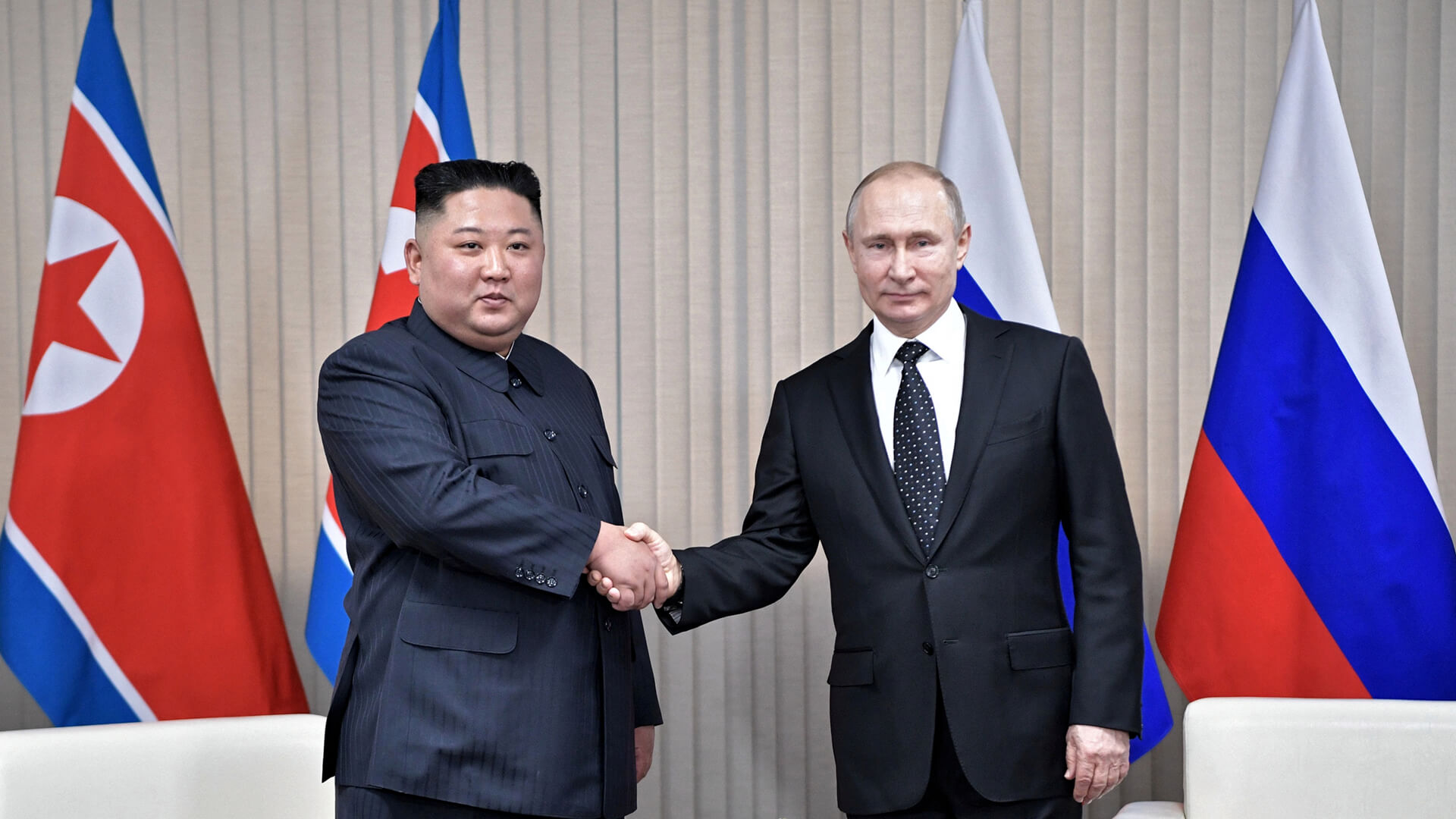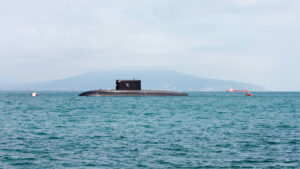Putin and Kim Jong-un finally had their little tea party at the Cosmodrome out in the far east of Russia. Besides boosting each other’s egos and gossiping a bit, it looks like the main discussions revolved around North Korea providing military assistance to Russia in the form of artillery shells.
Since Russia’s war on Ukraine won’t be letting up anytime soon, they need to replenish their dwindling supply of artillery shells. With limited options, Russia will have to settle for outdated North Korean supplies – not quite the pick of the litter here.
What does North Korea get out of this deal? Russia doesn’t have much to offer, but they could transfer some long-range missile tech to the North Koreans…and that’s cause for concern.
Given this deal’s regional and global security implications, countries like South Korea, Japan, China and the US should be worried. Sure, there are sanctions in place, but in all reality, those minor deterrents won’t stop North Korea.
Here at Zeihan On Geopolitics we select a single charity to sponsor. We have two criteria:
First, we look across the world and use our skill sets to identify where the needs are most acute. Second, we look for an institution with preexisting networks for both materials gathering and aid distribution. That way we know every cent of our donation is not simply going directly to where help is needed most, but our donations serve as a force multiplier for a system already in existence. Then we give what we can.
Today, our chosen charity is a group called Medshare, which provides emergency medical services to communities in need, with a very heavy emphasis on locations facing acute crises. Medshare operates right in the thick of it. Until future notice, every cent we earn from every book we sell in every format through every retailer is going to Medshare’s Ukraine fund.
And then there’s you.
Our newsletters and videologues are not only free, they will always be free. We also will never share your contact information with anyone. All we ask is that if you find one of our releases in any way useful, that you make a donation to Medshare. Over one third of Ukraine’s pre-war population has either been forced from their homes, kidnapped and shipped to Russia, or is trying to survive in occupied lands. This is our way to help who we can. Please, join us.
Transcript
Hey everybody. Peter Zeihan here coming to you from Phoenix, Arizona. Today, we have to talk about the summit between the strongmen of Russia in Korea, of Vladimir Putin on the Russian side and Kim Jong un on the Korean side. They met in one of the Russian Cosmodrome in the Far East and the primary topic was whether or not the North Koreans can provide the Russians with military assistance, which for anyone who has a sense of history.
The irony here is practically believing out of the sky anyway. The issue, of course, is that the Russian war in Ukraine is not going to spark. And when you have a conscript heavy force like the Russians do, you try to use standoff weapons that aren’t really smart in large volume, specifically artillery. If you exclude either China or the United States from the math, Russia has more artillery than the rest of the planet combined.
And best guess is, by the end of this year, they’ll have gone through over 20 million artillery shells, artillery shells don’t age particularly well. And after they’re more than like ten, especially after 20 years old, the explosive start to crystallize a little bit and that can make things decidedly lively when you try to, I don’t know, move them, especially when you try to launch them.
So the Russians have had a lot of accidents with the transport system, their logistical system. And then, of course, they’ve had a lot of barrels and the artillery to blow up from the inside. All of these are bad things if you try to launch a lot of artillery. So they need more shells and they’re turning to North Korea, which I believe has the world’s fourth largest stock of artillery.
The problem here, of course, is that North Korea’s industrial plant isn’t exactly great either. And a lot of the North Korean stuff is actually older than the Russian stuff. Gives you an idea of how desperate the Russians are for ammo. Now, the question, of course, is what are the North Koreans get in return? Because the Russians don’t have anything from a trade point of view that’s of use.
You might be able to send a few tankers of crude oil. But the Russians honestly need that for hard currency earnings. So the questions, if there’s anything else can be transferred in terms of military technology, there really isn’t. One of the things that the Indians have found out recently that they’ve been developing missiles and planes with the Russians, where the Indians provide a lot of the capital, and then the Russians provide the technical know how.
And what they’ve discovered is very few of those contracts are actually being honored by the Russians. So because the Russians have lost the technical capacity to manufacture even moderate numbers of planes. So they’re now starting to back out of all their contracts because they realize that the Russians have been lying to them the whole time. In addition, there’s some talk of like maybe a nuclear powered vessel or submarine, but it’s taken the Russians 15 years to build their last nuclear powered ship, which was an icebreaker.
So argue the argument to be made here is whether or not the Russians even have the capacity to sustain their existing nuclear naval fleet, much less build new ships for themselves, much less have surplus to transfer to North Koreans. And honestly, it’s looking pretty poor for that. That doesn’t mean the Russians have nothing, and it doesn’t mean that there’s not a problem.
This is probably not going to be the things that most people are talking about. Look at where the meeting was, the Cosmodrome. This is a facility out in the Far East that the Russians built when they lost control of the Kazakhstan Cosmodrome at the end of the cold War. And when it comes to launching satellites or intercontinental ballistic missiles, the Russians are still one of the few places in the world where that technology can theoretically be obtained, even if the Russians have lost the capacity to build a lot of new stuff themselves.
So the primary global concern, primary regional concern for North Korea is missiles long range missiles. And that is something the Russians have in spades. So whether it’s officially part of a program to launch a satellite into space, which, you know, whatever, or more likely to deliver a payload to another hemisphere, that is something the Russians can and probably are willing to transfer to the North Koreans because the Russians are no longer party to any meaningful arms control treaties at all, which will generate no end of headache, not just for the South Koreans and the Japanese and Chinese who.
Newsflash, the North Koreans hate the Chinese, but also the United States. There’s not a lot the United States can do about this because the North Koreans are not in a position where sanctions work at all. You can do as punish the Russians indirectly and hope for the best. And that’s not a great security strategy. But that is where we are.
Yeah, that’s all I got bye..








